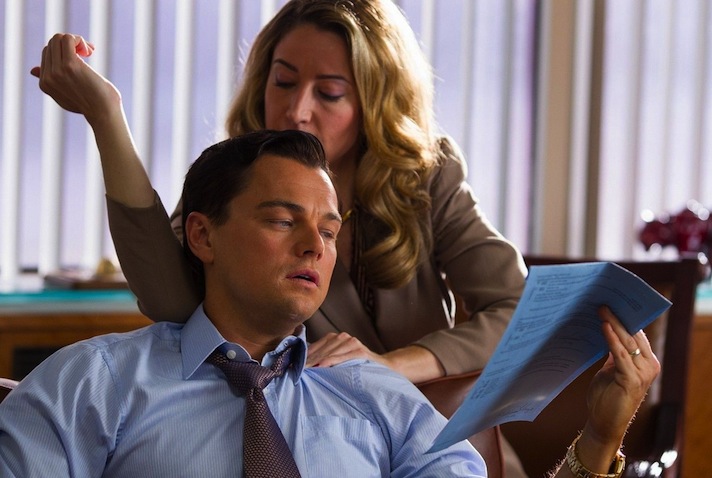 Almost every Martin Scorsese movie is worth a couple of watches. Throughout the years, I have found myself revisiting certain pictures of his again and again — “The King of Comedy,” “Raging Bull,” and “Taxi Driver” in particular — and finding that they often each play in an entirely different key.
Almost every Martin Scorsese movie is worth a couple of watches. Throughout the years, I have found myself revisiting certain pictures of his again and again — “The King of Comedy,” “Raging Bull,” and “Taxi Driver” in particular — and finding that they often each play in an entirely different key.
Few of his more recent films have caused the uproar generated by his 2013 smash “The Wolf of Wall Street” — many simply didn’t dig Scorsese’s groovily amoral expose in the soul-deadness of American capitalism and the prospect of spending three hours with a bunch of self-aggrandizing, misogynist scumbags simply wasn’t their idea of a good time. But of course, the picture has its fans: it’s Scorsese’s most rough, nasty, and purely entertaining movie since “Casino,” and many viewers simply got off on the presence of Jordan Belfort and his drugged-up, chest-thumping cronies, possibly without parsing the film’s acidic subtext about greed, venality, and corruption. More than a year since its initial release, we find ourselves asking: just what is “The Wolf of Wall Street,” really? Is it a defiantly wrong-headed walk on the sordid side of our national character? Is it the most brilliant black comedy ever about American Exceptionalism? Is a movie that features orgies on planes and Qualuude abuse really worth all the intense scrutiny? A new video essay, “Lessons of the Wolf” by Milad Tangshir, takes an incisive look at the film’s narrative structure and moral themes, unearthing the twisted ethics buried deep within Mr. Scorsese’s party-on-wheels of a movie.
In ‘Wolf,’ Marty uses practically every cinematic technique he’s ever employed to depict the raucous undoing of the frat-house pump and dump that was Long Island’s Stratton Oakmont. Voiceover, fast-paced montage, ironic use of a variety of pop tunes, fake TV commercials, even Dicaprio’s Belfort addressing the viewer directly… it’s this wild gumbo of narrative tricks that gives ‘Wolf’ its deliberately jagged and disorienting vibe. Just look at the film’s opening scene, which juxtaposes a cartoonishly sanitized television re-creation of Stratton’s office with its brutish real-life incarnation, where midgets and stacks of money fly through the air like confetti. Scorsese’s affinity for voiceover is well-known at this point. His earlier pictures (“Goodfellas,” “Casino,” and especially “Taxi Driver”) get their kicks from the contrast of his deluded protagonist’s self-mythologizing, almost disbelieving narration, and the stark, real-life ugliness of their actions. Tangshir throws in clips from classics like “Citizen Kane” and Hitchcock’s “Psycho” for points of comparison in use of these cinematic tropes. For a film about shallow people, “The Wolf of Wall Street” cuts awfully deep, and anyone who dug the film is sure to find plenty to be absorbed by in Mr. Tangshir’s probing critique.





